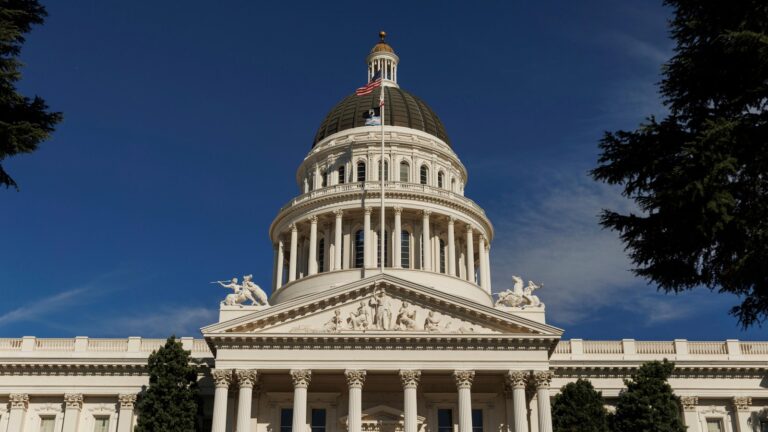Sacramento, California — California lawmakers this week approved a series of proposals aimed at regulating the artificial intelligence industry, combating deepfakes and protecting workers from exploitation by the rapidly evolving technology.
The Democratic-controlled California Legislature is scheduled to vote on hundreds of bills to send to Gov. Gavin Newsom in the final week of the session, with a deadline of Saturday.
The Democratic governor has until Sept. 30 to sign, veto or allow the bill to become law without his signature. Newsom indicated in July that he would sign a bill to crack down on election deep fakes, but has not considered any other bills.
He warned this summer that excessive regulation could hurt domestic industry, and in recent years he has often vetoed bills that he would otherwise support, citing the state’s financial struggles.
Here are some of the AI bills lawmakers have approved this year.
Citing concerns that AI tools are increasingly being used to deceive voters and create deepfake pornography of minors, California lawmakers approved several bills this week aimed at cracking down on the practice.
Lawmakers approved a bill that would ban election-related deepfakes, require major social media platforms to remove false content 120 days before and 60 days after Election Day, and require campaigns to disclose whether they are running ads with content altered by AI.
Both proposals would make it illegal to use AI tools to create child sexual abuse images or videos. Under current law, district attorneys cannot pursue people who possess or distribute AI-generated child sexual abuse images unless they can prove the material depicts real people.
Another proposal would require tech companies and social media platforms to offer AI detection tools to users.
California could become the first state in the nation to impose comprehensive safeguards on large-scale AI models.
Lawmakers have presented a bill to the governor that would require developers to disclose the data they use to train their models, an effort aimed at providing greater insight into how AI models work and preventing future catastrophic disasters.
Another measure would require states to set up safety protocols to prevent risk and algorithmic discrimination before agencies enter into contracts that include AI models used in decision-making.
Prompted by a months-long strike by Hollywood actors last year, lawmakers approved a bill to protect workers, including voice actors and audiobook performers, from being replaced by AI-generated clones. The bill mirrors language in a contract SAG-AFTRA signed with studios in December.
One proposal would ban state and local governments from using AI to replace call center workers.
California could also impose penalties on creating digital clones of dead people without the consent of the surviving family.
As companies increasingly integrate AI into Americans’ daily lives, state lawmakers have also passed several bills aimed at increasing AI literacy.
One proposal would require a state task force to consider incorporating AI skills into math, science, history and social science curricula, while another would develop guidelines for how schools can use AI in the classroom.

